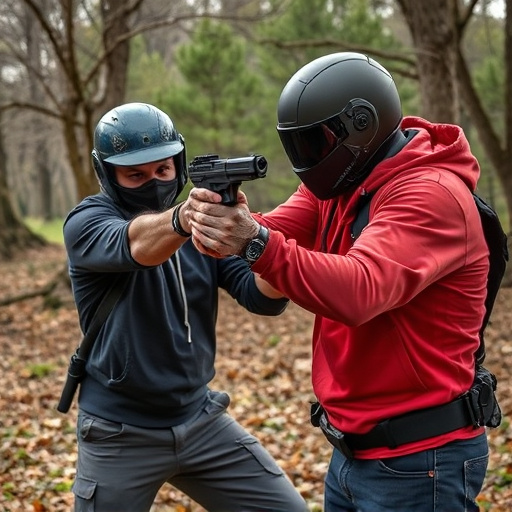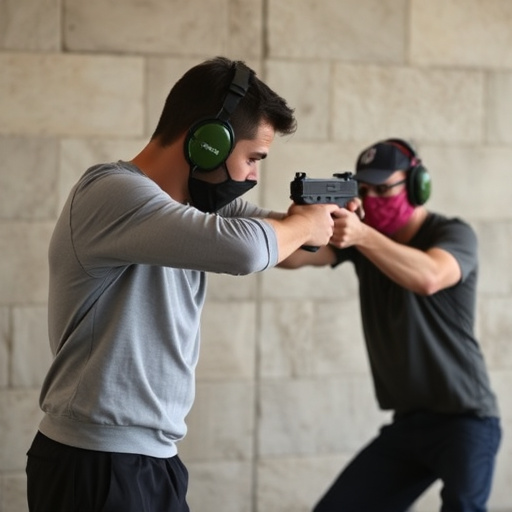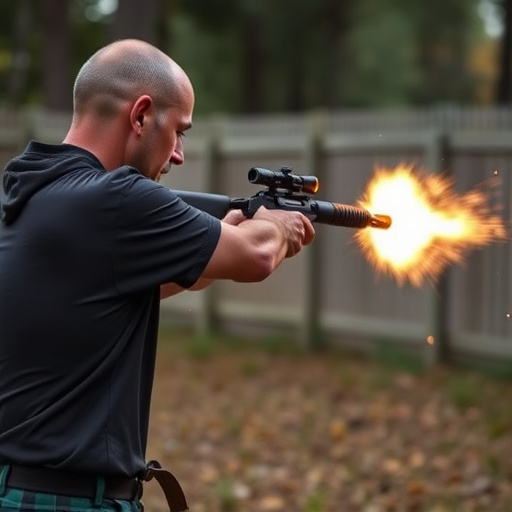Understanding state laws on civilian taser ownership is crucial for anyone considering a stun gun for personal protection. Each state has unique regulations regarding permit systems, power restrictions, and prohibited areas. To legally and safely own a concealed carry stun gun, individuals must meet eligibility criteria, pass background checks, complete safety training, and adhere to specific storage rules, as well as local open or concealed carry regulations. Following concealed carry stun gun safety tips, including regular device inspection, de-escalation techniques, and proper storage, is essential for responsible ownership.
“Uncovering the legal landscape surrounding civilian taser ownership is essential for those interested in armed self-defense. In the United States, state laws dictate the rules for carrying stun guns, also known as tasers, for personal protection. This article guides you through the intricate web of regulations, focusing on the requirements for obtaining a stun gun and concealing it for self-defense.
We’ll explore safety tips to ensure responsible ownership, empowering individuals to make informed decisions about their personal security while navigating the legal framework.”
- Understanding State Laws on Civilian Taser Ownership
- Requirements for Concealed Carry of Stun Guns
- Safety Tips for Responsible Stun Gun Ownership
Understanding State Laws on Civilian Taser Ownership

Understanding state laws on civilian taser ownership is crucial for anyone considering carrying a stun gun for personal protection. Each state has its own set of regulations and requirements, ranging from permit systems to strict restrictions on who can possess and carry a taser. For instance, some states allow individuals with a valid concealed carry permit to own and carry stun guns, while others may require additional training or certifications.
When exploring civilian taser ownership, it’s essential to familiarize yourself with your state’s specific laws, focusing on Concealed Carry Stun Gun Safety Tips. This includes understanding the type of taser allowed, any size or power restrictions, and whether there are specific areas where tasers are prohibited. Staying informed ensures compliance with local regulations and promotes safe carrying practices.
Requirements for Concealed Carry of Stun Guns

In many states, civilians can legally own a stun gun for self-defense purposes, but obtaining and carrying it concealed comes with stricter requirements. Beyond meeting basic eligibility criteria such as age and background checks, individuals interested in carrying a stun gun hidden on their person must adhere to state laws regarding concealed carry permits (CCW). These permits often involve additional safety training and strict regulations on where and how the device can be carried. Some states may also mandate specific types of holsters or safety devices to prevent accidental activation.
Concealed carry of stun guns requires a level of responsibility and awareness. Safety tips include ensuring the device is always in a secure, locked case when not in use; avoiding leaving it in accessible places like vehicle glove compartments; and familiarizing oneself with local laws regarding open or concealed carry, as these regulations can vary significantly from one state to another. It’s crucial for stun gun owners to remain informed about their rights and responsibilities to ensure safe and legal possession.
Safety Tips for Responsible Stun Gun Ownership

Owning a stun gun, also known as a tactical electronic control device (ECD), comes with unique responsibilities. As with any weapon, proper training and safety precautions are essential. Before considering concealed carry stun gun ownership, familiarize yourself with local state laws regarding ECDs. Ensure you meet the age requirements and understand the permitted use cases.
When carrying a stun gun, prioritize safety by storing it in a secure, dedicated holster or case. Keep it out of reach of children and unauthorized individuals. Regularly inspect your stun gun for any signs of damage or malfunction and ensure the device is always charged and operational. Remember to stay informed about de-escalation techniques and only use force when absolutely necessary as per legal guidelines.
In conclusion, understanding and adhering to state laws regarding civilian Taser ownership is paramount for those seeking to exercise their right to self-defense while prioritizing safety. The concealed carry of stun guns comes with unique requirements that vary across jurisdictions, emphasizing the need for thorough research before acquiring such a device. By following responsible ownership practices, including proper training and storage, individuals can ensure they utilize stun guns safely and effectively, enhancing personal security without compromising public safety.
